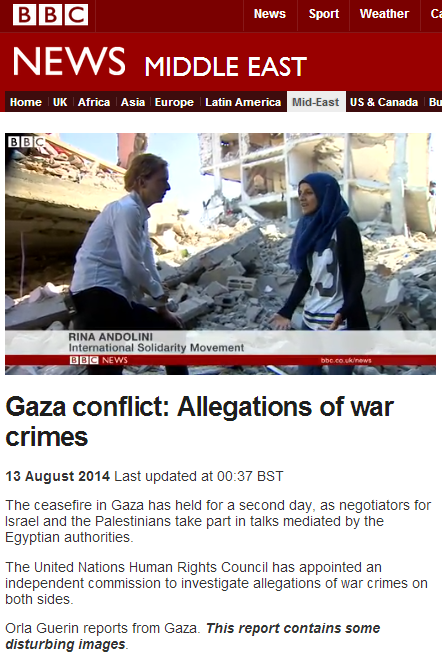As we saw in part one of this post, the April 16th edition of BBC Radio 4’s ‘Today’ programme included a report by the BBC Jerusalem bureau’s Yolande Knell which related in part to an unpublished US administration peace plan and which adhered to existing BBC framing of that subject.
Later on in the same show (from 1:33:59 here), listeners heard a longer item on the same topic introduced by co-presenter Mishal Husain.
[emphasis in italics in the original, emphasis in bold added]
Husain: “Post-election talks are continuing in Israel with Benjamin Netanyahu expected to be formally named prime minister for a fifth term tomorrow.”
In fact the Israeli president was due to task the candidate recommended by most party leaders with the forming of a new government. Husain went on to cite the same newspaper report referred to earlier by Knell.
Husain: “And then, most likely in June, President Trump is expected to unveil what he’s called ‘the deal of the century’ between Israel and the Palestinians. The Washington Post reports that the plan will involve Palestinian autonomy rather than a sovereign state and ahead of its publication a group of 30 senior European figures including former prime ministers and former foreign ministers have said Europe should reaffirm its commitment to a two-state solution.”
The letter concerned can be found here. Without explaining the concept of the two-state solution, Husain introduced her guest.
Husain: “Well Douglas Alexander – former Labour MP and former Foreign Office minister – is one of the signatories to that letter and he’s with us. […] Why make this statement before we’ve seen what’s in the Trump peace plan?”
Alexander: “Because the core argument of the letter is that statehood for the Palestinians is not a gift to be given or indeed a gift to be denied by Donald Trump but a right to be recognised in international law. For decades the United States has been the key actor in this region trying to secure peace. But I think it’s important to recognise that this administration has taken a series of dangerous steps in a very dangerous region. Whether that’s the withdrawing of funding for the 5 million Palestinians who are supported by the UN Work [sic] and Relief Agency, whether that’s the move of the US embassy from Tel Aviv to Jerusalem, whether it was the recognition last week of Israeli sovereignty in relation to the Golan Heights. So at that point I think as Europeans we face a fundamental choice: are we going to be part of an apparatus of enablement for the permanent annexation of Palestinian land or are we going to continue to speak up for democracy, for human rights and for that two-state solution that’s been the goal for so many years?”
Husain failed to challenge that use of the politically motivated term ‘Palestinian land’ and made no effort to ask Alexander how he proposes to bring about a two-state solution given that the Palestinian Authority does not represent the whole of the Palestinian people and does not control part of the relevant territory. Neither did she inquire how ‘speaking up for democracy’ is served by advancing the creation of a state on territory currently ruled in part by a terrorist organisation which oppresses human rights and in part by an entity headed by a ‘president’ whose term of office ended over a decade ago. Instead, Husain in fact just repeated her first question.
Husain: “But you are making an assumption based on the actions you list about what will be in the Trump peace plan.”
Alexander: “Well let’s look at what Donald Trump has actually done over the last couple of years. His strategy seems to be pursuing a policy systematically to weaken the Palestinian Authority while lifting restraints on Israeli annexation of land in the West Bank.”
Although no land in “the West Bank” has been annexed at all in “the last couple of years”, Husain failed to challenge that falsehood.
Alexander: “And in that sense the destruction is coming from the Trump administration rather than the position we articulate in the letter, which is the end solution has to be based on the long-standing parameters.”
Husain made no effort to remind listeners that the Palestinians have repeatedly rejected that “end solution” over the decades.
Husain: “Would you acknowledge though the limited power of European leaders in all of this? It is really the United States which is…which is the key influence on the…on the Israeli government.”
Once again we see the BBC portraying Israel as the only active party in the conflict.
Alexander: “Oh absolutely. I recognise that the United States has a key influence in the region but as Europeans we face a choice. Do we stand by a crushed and marginalised people or do we accede to a view by Donald Trump of the international community. Let’s be clear: this is a Trump administration that fundamentally believes multilateralism is nonsense. Look at the institutions created after the second World War – the United Nations, the European Union, NATO, the World Bank, the IMF, WTO. All of those as far as Donald Trump is concerned are really just a mechanism for small countries to rip off the United States. So we face a choice: do we stand for multilateralism and international law or do we accede to that radical viewpoint?”
Husain refrained from asking what that theory has to do with the Arab-Israeli conflict. She then side-stepped another opportunity to explain to listeners why the two-state solution has “gone nowhere” – even when Alexander replied to her next question with a blatant falsehood.
Husain: “But you seem to be standing for an idea, a pledge – the two-state solution – which has gone nowhere for the last 25 years. Isn’t it time to think about something else?”
Alexander: “I think it’s certainly right to recognise that the Palestinians for 25 years have been negotiating to try to secure that outcome but in the face of what we’re now witnessing from the Trump administration and indeed from the statements we heard from Netanyahu last week, we can pretend that nothing’s changed, we could certainly do that. Or we can do what I think is the just and decent thing by an oppressed and marginalised people who aspire within the rules of international law to something that Israel has enjoyed since 1948 which is a land of their own. That seems to me a perfectly reasonable objective for European politicians.”
The BBC’s idea of balance to that superficial softball interview in which Douglas Alexander was given an unchallenged platform from which to promote assorted distortions and falsehoods was an interview with Israeli MK Sharren Haskel in which an impatient-sounding Husain interrupted her no fewer than eight times and brought the interview to an abrupt close when Haskel began talking about the prioritisation of “weapons, hatred and war” by the Palestinian leadership in the Gaza Strip over the creation of an autonomous entity serving the interests of the Palestinian people.
Once again we see that the BBC’s portrayal of the as yet unpublished US peace proposal adheres to strict and selective framing in which there is no room for information which would enhance audience understanding of the topic, such as Palestinian rejection of that plan, Palestinian rejection of previous proposals, Palestinian rejection of the Jewish state or the twelve-year split in Palestinian leadership which renders the two-state solution irrelevant.
Related Articles:




